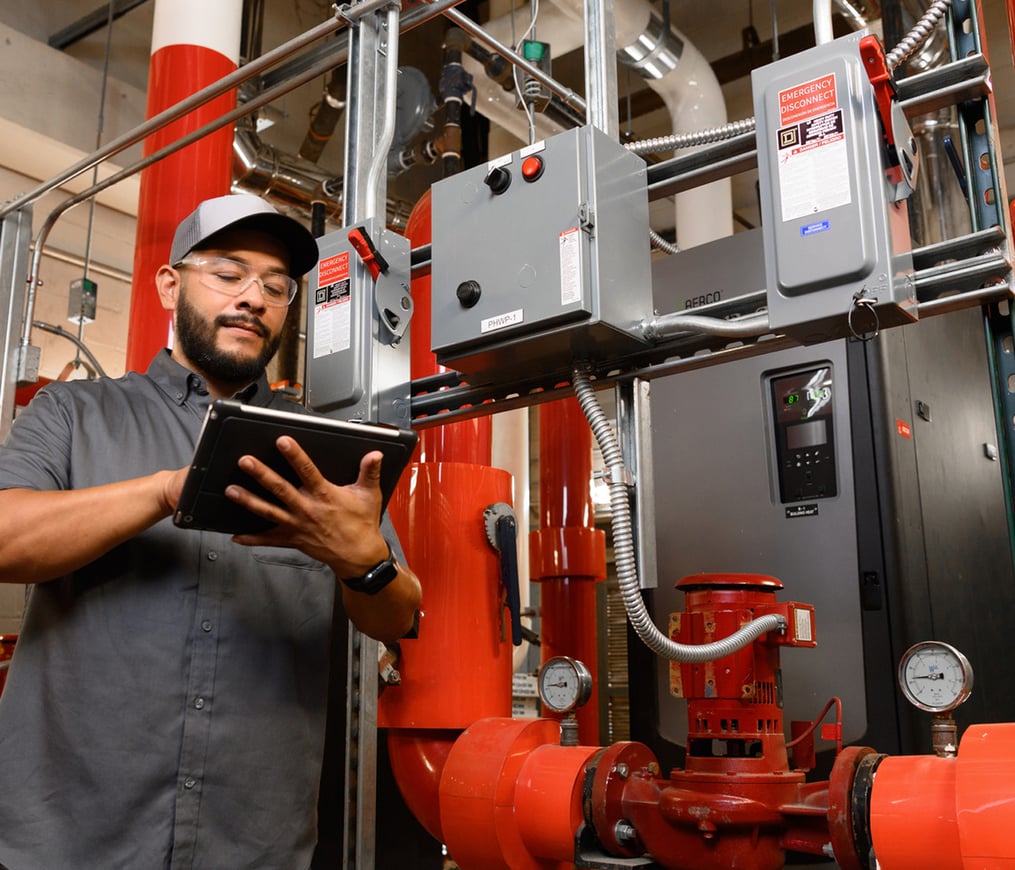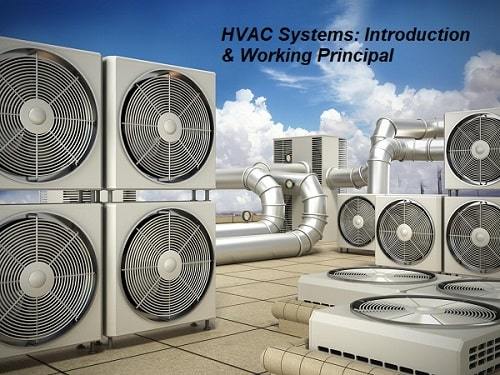An Extensive Take A Look At A/c Services and Their Influence On Energy Effectiveness and Expense Cost Savings
The role of HVAC solutions in boosting power efficiency and achieving price financial savings is much more critical than ever, as services and property owners seek sustainable services in a significantly eco-conscious world. With technological developments like clever thermostats and high-efficiency components, the capacity for maximizing system efficiency is substantial. Yet, the real effect of these developments depends largely on normal upkeep and aggressive problem management. As we check out the complex connection between HVAC systems and functional costs, including the change in the direction of ecologically pleasant options, the inquiry develops: exactly how can these methods be successfully implemented to make best use of both economic and ecological benefits?

Significance of Cooling And Heating Equipments
a/c systems are a vital component of modern buildings, playing an essential duty in keeping comfortable and healthy and balanced interior atmospheres. These systems, including heating, air, and air flow conditioning, are essential for regulating temperature level, moisture, and air top quality, consequently guaranteeing the well-being of passengers. Effective a/c systems add considerably to producing an optimum indoor climate, which is important for both business and household rooms.
In commercial structures, cooling and heating systems are indispensable to offering a productive and secure environment. By regulating interior climate problems, these systems assist prevent the development of mold and mildew and the spread of air-borne contaminants, thus securing the wellness of consumers and staff members. Furthermore, in household setups, heating and cooling systems enhance living problems by using constant thermal comfort and enhancing interior air high quality, which is essential for overall health and wellness.
Moreover, the style and maintenance of heating and cooling systems have a straight effect on power consumption and functional prices. Effectively created and maintained systems can dramatically decrease power usage, leading to minimized utility expenses and a smaller sized carbon impact. The effectiveness of these systems thus plays an important role in promoting sustainability and energy preservation within buildings, highlighting their significance in the modern-day building landscape.
Advancements in Heating And Cooling Technology
Technology in heating and cooling modern technology is transforming the way structures handle interior climates, ushering in a brand-new period of efficiency and control. Current advancements have concentrated on maximizing energy intake while improving customer comfort. One remarkable growth is the combination of wise thermostats, which use expert system to learn occupancy patterns and readjust temperatures appropriately, minimizing unnecessary power usage.
Variable Cooling Agent Flow (VRF) systems represent an additional considerable leap ahead. These systems enable for specific temperature level control in various zones of a structure, boosting convenience and lowering energy waste. VRF innovation is especially advantageous for big industrial spaces, using flexibility and scalability.
Additionally, the advent of Web of Things (IoT) devices has changed heating and cooling systems right into interconnected networks efficient in real-time data collection and evaluation. This connectivity allows predictive maintenance, ensuring systems run at peak performance and minimizing unanticipated downtime.
Moreover, innovations in products and style, such as making use of high-efficiency coils and compressors, have actually enhanced general system efficiency - Heating Contractor. The adoption of eco-friendly cooling agents also highlights the industry's commitment to sustainability
These technological advancements are crucial in minimizing operational costs and ecological effect, establishing brand-new requirements for developing environment monitoring.
Heating And Cooling Maintenance and Performance
Ensuring ideal efficiency of cooling and heating systems expands past technical improvements; it additionally hinges on efficient upkeep methods. Regular upkeep is crucial for maintaining efficiency, decreasing energy intake, and prolonging the life expectancy of HVAC systems. The main goal is to guarantee that all components work at their peak possibility, therefore decreasing energy waste and maintaining regular indoor comfort degrees.
Routine maintenance tasks, such as cleansing or changing air filters, examining refrigerant degrees, and inspecting ductwork for leakages, are necessary for protecting against unneeded stress on the system. Filthy or clogged up filters can block airflow, triggering the system to work more challenging and take in even more energy. Also, poor refrigerant levels can decrease cooling performance, causing higher functional costs.
Furthermore, regular examinations by qualified professionals can recognize possible problems before they intensify into pricey repair services or system failures. These inspections usually include checking electrical connections, adjusting thermostats, and ensuring the general stability of the cooling and heating system. By attending to minor issues early, businesses and home owners can prevent unforeseen failures and boost energy performance.
Affordable Heating And Cooling Solutions
For those aiming to get one of the most out of their ventilation, air, and home heating conditioning systems without breaking the bank, exploring economical cooling and heating solutions can make a substantial distinction. One immediate measure is to buy programmable thermostats, which permit customers to set details great post to read temperature levels for various times of the day, optimizing power use and reducing unnecessary intake. By automating temperature changes, homeowners can accomplish significant cost savings on energy bills.
Normal maintenance is an additional vital part of economical a/c management. Making sure that filters are cleaned or changed on a regular basis, ductwork is secured, and systems are serviced by specialists can protect against costly repair services and boost system durability. Preventative maintenance not only keeps system efficiency yet additionally helps in avoiding unexpected failures that can lead to costly emergency situation repair services.
In addition, retrofitting existing systems with energy-efficient components, such as variable rate motors or high-efficiency compressors, can be a sensible financial investment. These upgrades boost operational performance, minimize energy usage, and can commonly be executed at a portion of the expense of a full system substitute.
Environmental Effect Decrease
Lowering the environmental influence of A/c systems is crucial in today's pursuit of lasting living. HVAC systems are substantial factors to power intake, accounting for almost 40% of power usage in industrial structures.
Technical improvements in a/c layout and procedure, consisting of the integration of smart thermostats and energy-efficient warm pumps, are essential in reducing carbon impacts. These advancements permit optimized energy use, minimizing waste and enhancing overall system efficiency. Additionally, embracing regular upkeep methods guarantees heating and cooling systems run at peak efficiency, additional curtailing unnecessary energy consumption.
Furthermore, making use of eco see this site pleasant cooling agents is crucial, as conventional cooling agents, like CFCs and HCFCs, have been terminated because of their ozone-depleting residential properties. Modern alternatives, such as hydrofluoroolefins (HFOs), offer reduced environmental threats, aligning with worldwide ecological methods. By embracing these sustainable practices, heating and cooling solutions can play a transformative duty in lowering environmental influences, promoting power effectiveness, and promoting a more lasting future.
Conclusion

In addition, the style and maintenance of Heating and cooling systems have a straight effect on power usage and functional expenses. Normal upkeep is vital for maintaining efficiency, reducing power consumption, central ac system and extending the life span of Cooling and heating systems. A/c systems are considerable factors to power intake, accounting for almost 40% of energy usage in business buildings. In addition, taking on regular upkeep methods makes sure HVAC systems run at peak performance, further stopping unnecessary power intake.
The transition to ecologically pleasant HVAC systems better minimizes functional expenses and advertises sustainability. (Heating Contractor)